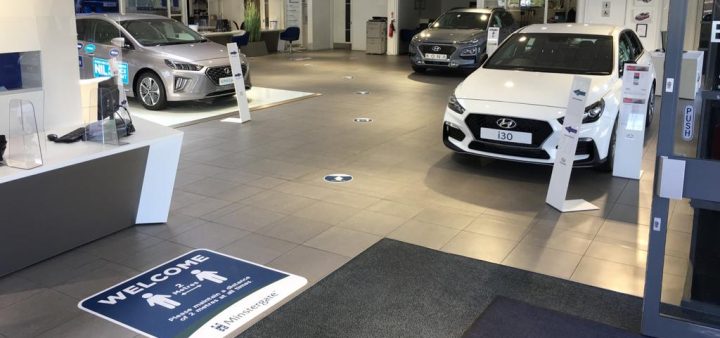Some 2.7 million more drivers are planning to opt for a new car this year than previous years, according to Close Brothers Motor Finance’s upcoming Britain Under the Bonnet Report.
For 45% of drivers, a new car is the preferred option – significantly up from 38% last year.
For the first time in several years, demand for new cars has significantly exceeded demand for used, likely partially due to the supply challenges that the industry has faced in light of Brexit and during the pandemic. Two in five (38%) car buyers plan to opt for a used car as their next vehicle purchase – still a large proportion of drivers, but down from 48% last year and 49% in 2019.
With the Government banning new diesel and petrol cars from 2030, this has influenced more than one in ten (11%) drivers to buy a used car as a ‘filler’ car – a vehicle that will tide them over in the interim between now and when the ban comes into effect, at which point they’ll need to explore alternative fuelled vehicles (AFVs) or hybrid models if they want to buy a new car.
One in five (18%) don’t believe it matters whether the car they buy is used or new. The research also found that affordability of used cars remains a driving factor for buyers. Well over half (53%) of those choosing a used car are worried they can’t afford a new car – which is truer of women (57%) than men (47%). One in six (17%) could afford a new car, but it’s not their financial priority. While 45% of drivers think new cars depreciate too much to warrant the extra cost, and 41% think used cars offer better value for money.
For those who more inclined to opt for a new car, 45% say the reason for that is because they trust it’ll last longer, while 39% think new cars are better for the environment, 36% think they are more economical to run, and 32% think they offer better value for money.
Seán Kemple, Managing Director of Close Brothers Motor Finance, said, “Opting for a new or a used car isn’t a fleeting decision – for most drivers there are clear motivations behind their choice, so it’s important that the motor industry is paying attention to consumer sentiment.
“The pandemic has undoubtedly shifted behaviours, and with a newfound reticence to use public transport, owning a private car has become a necessity for many. The pandemic has also polarised people’s financial affairs – with some feeling the impact of job losses and economic decline, while others have been able to save up during the lockdowns. This has undoubtedly impacted people’s decisions to opt for a more affordable option as their next car, or to splash out on a brand-new model.”
The 2030 ban on new petrol and diesel cars has also forced drivers to reconsider their options. The average age of a vehicle on the road is 7.8 years, according to the SMMT,[1] so the ban being just a decade away will influence people’s decisions now. ‘Filler’ cars might be feasible for some, but for others, buying a new or used AFV or hybrid model now could be more cost-effective in the long term, rather than after the ban comes into force.
“For used cars, there’s a clear supply issue – partly due to Brexit. Until the trade deal was agreed there was a real worry that Britain’s automotive sector would not be able to trade with the EU. This was especially concerning for manufacturers, as four out of five cars made in the UK are exported. But beyond Brexit, a general contraction in new car sales over recent years has meant the used ‘car park’ of the UK has shrunk. This bottleneck has pushed prices up, both at a wholesale and retail level. These constraints mean dealers need to be smart in their approach, making sure they’ve got the best supply chains to match the demand in their area.”


